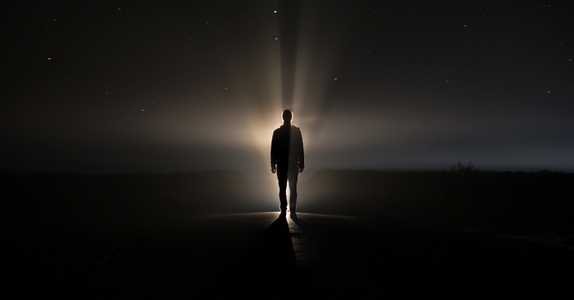What Is Dark Night Of Soul?
“Now that I no longer desire all, I have it all without desire.” - St. John of the Cross
Have you ever felt alone in a world that seems meaningless, struggling to find purpose, losing your sense of direction, and feeling like you've lost all hope? If so, you might be experiencing what's known as a Dark Night of the Soul.
In this blog, I will talk about this mysterious journey. Though I haven't personally undergone this experience, my interest in this idea has driven me to explore more and share the knowledge I've gathered.
The Dark Night of the Soul represents a spiritual crisis with deep emptiness, disconnection, and a sense of being spiritually lost. This difficult phase is usually triggered by significant life events, prolonged suffering, or intense spiritual practices. During this time, individuals may deeply yearn for meaning and purpose. Yet, their usual sources of satisfaction no longer fulfill them. It's a time when everything seems pointless, leaving one feeling lost. While there's a pull towards feeling like a victim and seeking comfort to avoid responsibility, it often leads to misery, even though it's familiar. This usually involves letting go of past frameworks, such as identity, relationships, careers, habits, and beliefs, that once gave meaning to one's life.
The concept of the dark night of the soul was originally introduced in the poem "Dark Night of the Soul" by Saint John of the Cross, a 16th-century Spanish mystic and poet. It's a crucial step on the path to spiritual enlightenment, commonly following a phase of insight and spiritual advancement.
Though the Dark Night of the Soul can be emotionally tough, it's crucial to spiritual growth. It urges people to let go of attachments and false identities to find a more genuine spiritual connection. It's not about trying to 'become more,' but simply 'be' more, disconnecting from the external and reconnecting with the present moment.
The Dark Night of the Soul represents a crucial phase in personal development, significantly shifting one's perception of life. The hardest part of this experience is confronting your inner struggles, such as fears, desires, traumas, and beliefs. This phase can be overwhelmingly dark and hopeless. It may lead to emotional numbness, estrangement from friends and family, isolation, or reliance on addictive behaviors as coping mechanisms. Although this often feels like the most challenging time, it can also teach valuable lessons if one is open to learning.
As the journey continues, these feelings of despair and isolation might intensify. However, after withstanding the darkest moments, individuals start recognizing the truth, which isn't easy. This phase may bring physical symptoms like headaches, nausea, body aches, and emotional manifestations. It's a crucial stage where you're finally ready to confront reality and find deeper meaning in life and its complexities. It's about reaching a point to view the world without imposing our usual ways of understanding it. It's about feeling alive without trying to fit everything into preconceived ideas.
In certain struggling phases, people naturally push against the changes happening. They may avoid the tough times by sticking to what's familiar or looking for solutions outside themselves. But this resistance can make the difficult stage last longer. So, it's crucial to let go and accept things as they are. It needs patience, being kind to yourself, and being okay with feeling uncomfortable and not knowing what's ahead. It's a time to think about yourself and look inside. Instead of fighting against the tough times, it's good to go with the flow. Even though it's hard, accepting it all can bring you some profound insights and a better understanding of yourself. When you completely let go and accept things, your old beliefs, connections, and things you really wanted disappear. This part brings more peace and clarity inside you. In various spiritual traditions, this step is seen as cleansing the soul, leading to significant change.
The dark night of the soul is like experiencing a sort of inner death. What fades away is the sense of self-tied to the ego. Some who've gone through this change realize they needed this to trigger a spiritual awakening. It's often part of this process—the end of the old self and the start of the true self.
After researching, I've found ways to help people going through the Dark Night of the Soul. Practices like mindfulness, meditation, and writing in a journal really work well in this challenging time. These things can help you feel more grounded and clearer. Learning from spiritual leaders who have gone through similar experiences can offer valuable lessons for those curious about this journey. Their teachings and stories are invaluable sources of guidance. Eventually, as people reach the end of their tough times, they'll find peace, understanding, and completeness that they might have missed. They often come out with more wisdom, a clearer mind, and a stronger connection to their spiritual side. Integrating what they've learned during this time can really change things for their betterment in daily life.
The Dark Night of the Soul is truly fascinating. It's like a deep journey on which you learn a lot about yourself and feel more connected to everything around you. It's about surpassing past fears and ego to find what's real, connect with something bigger, and figure out your purpose in life.
